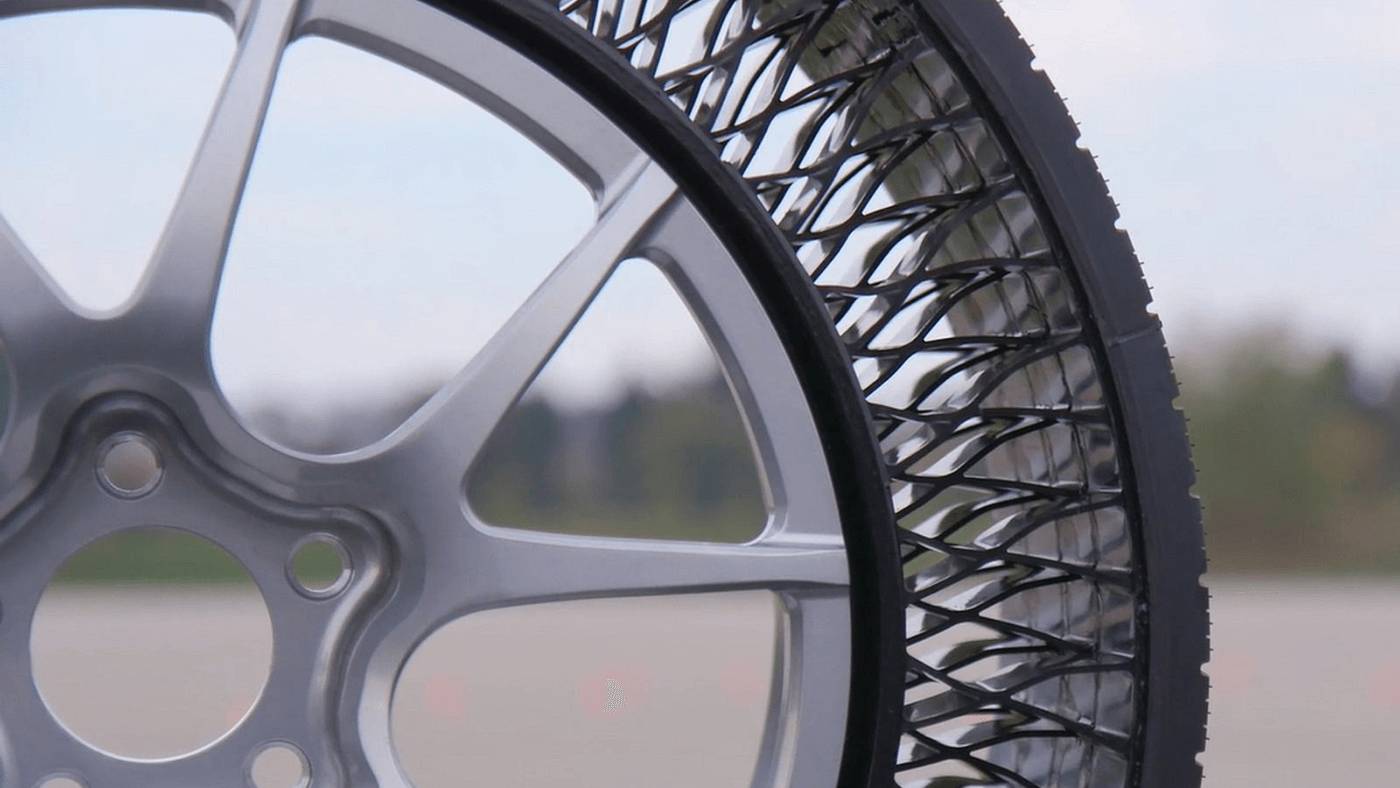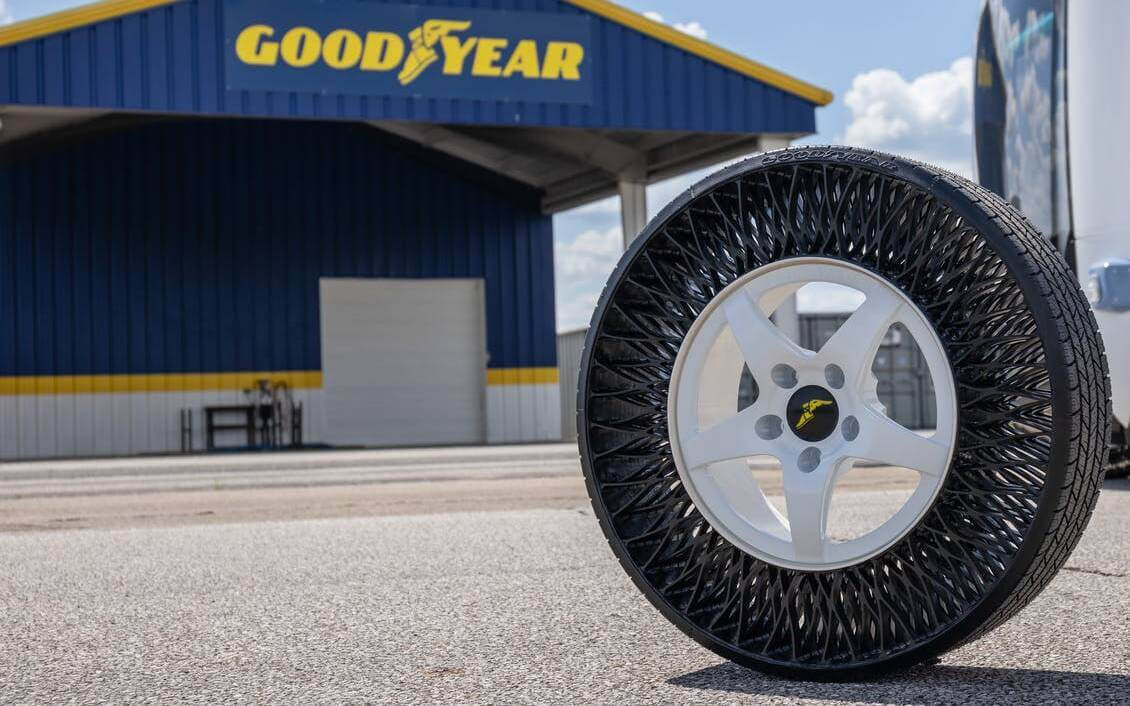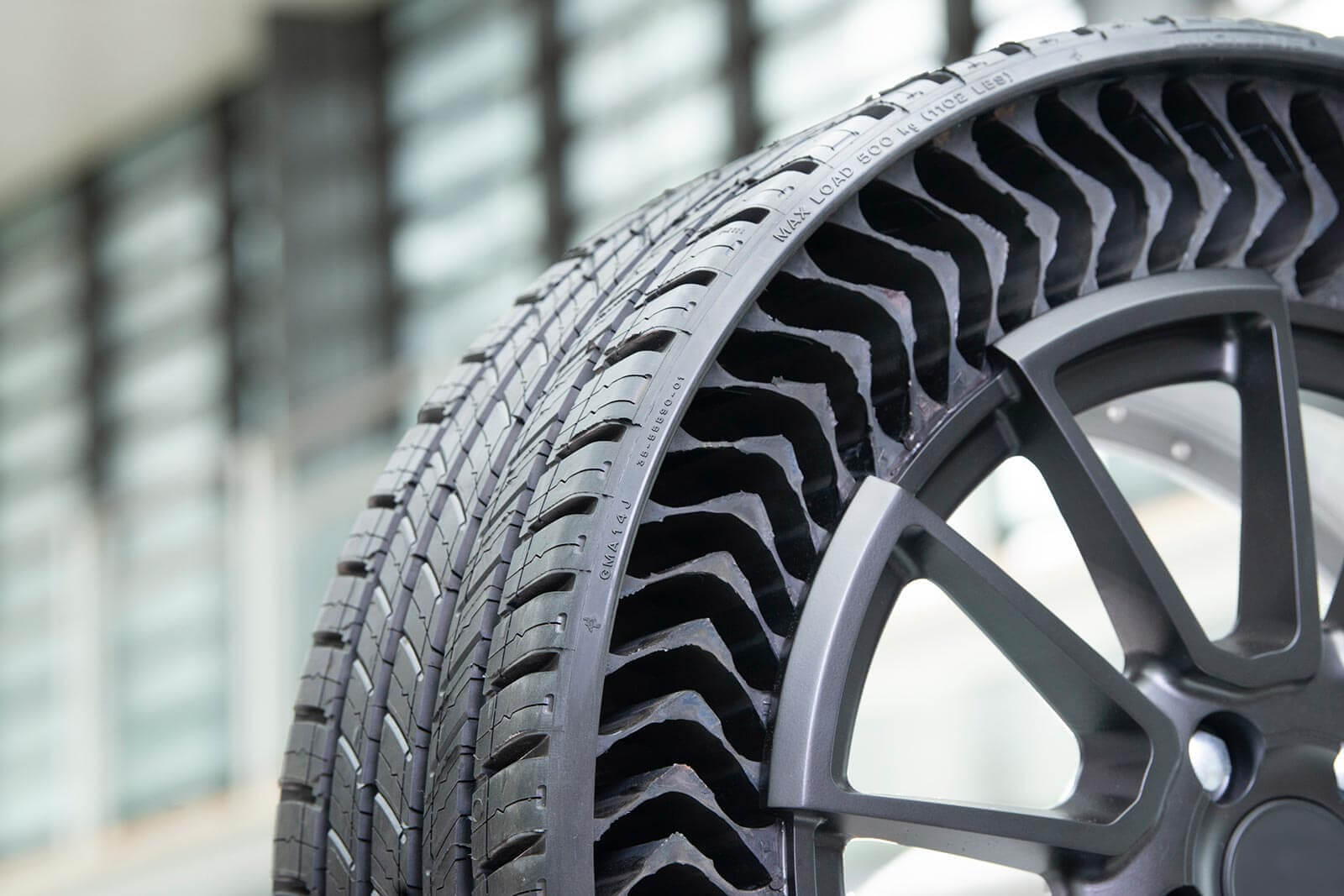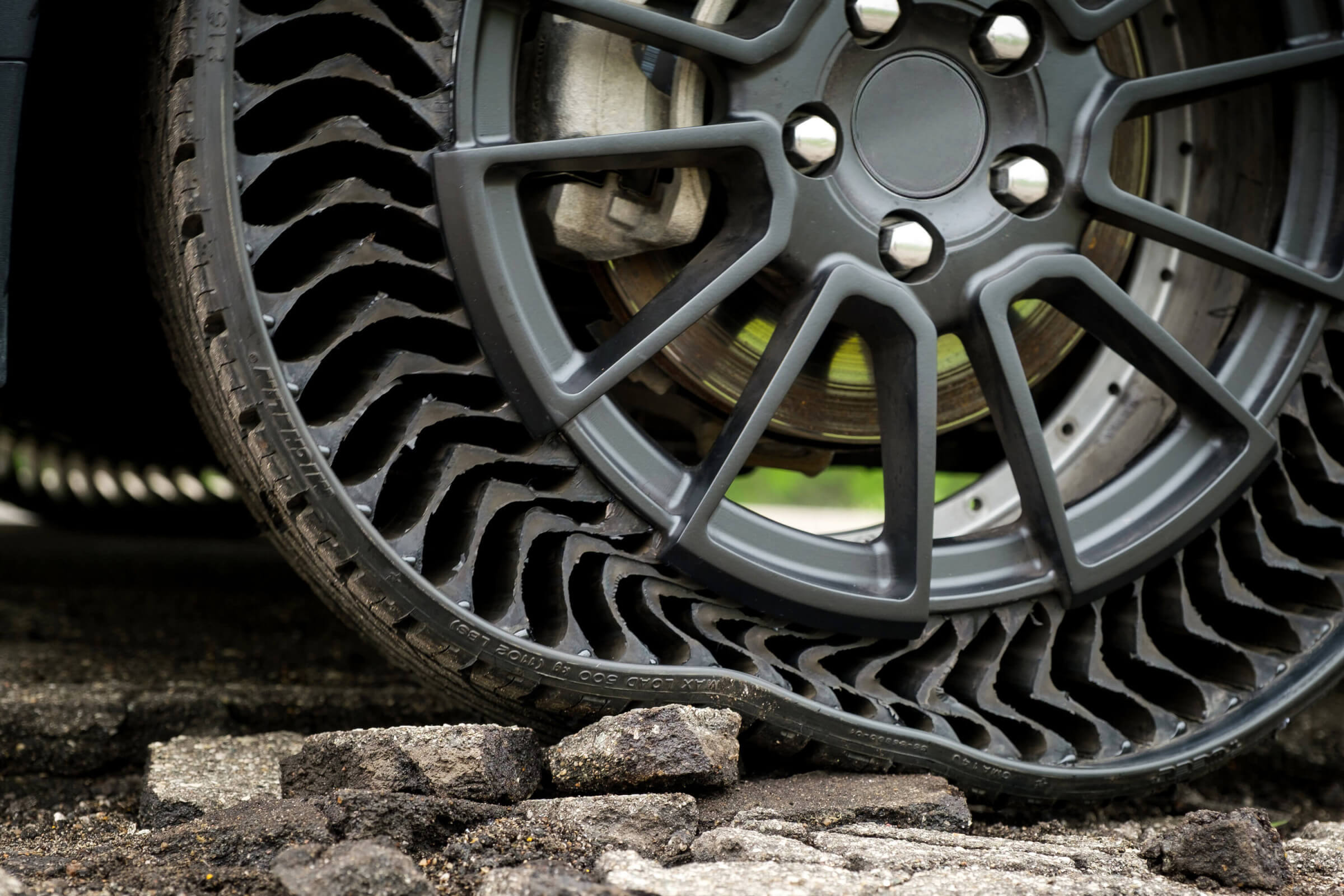Let's face it, the concept of the tube tire has evolved little since its invention almost a century and a half ago. While rubber composition, tire shape and tread have been perfected since then, nobody has reinvented the wheel, no pun intended. The Holy Grail for tire manufacturers is the famous airless, puncture-proof, all-weather tire and it has been for some time. Are we now closer than ever to this revolution?
That's what you might think if you’ve read the news of Nissan's recent patent application to the World Intellectual Property Organization for an airless honeycomb-style tire. Michelin and Goodyear have already made headlines for similar proposals, but this is the first time an automaker has shown its own version of the tire of the future. What's more, according to the company, not only would it be more robust, it would also be more environmentally friendly.
Ready for production?
The concept presented by Nissan is undoubtedly one of the most promising, perhaps even more so than Michelin's UPTIS project. One of the main challenges in creating airless tires is to ensure rigidity even with a very light structure. The manufacturers' solution is a honeycomb design that offers plenty of support while using less material.
The Nissan tire has even more honeycomb cells than the UPTIS, giving it not only greater rigidity, but also better grip on the road. Another solution is to make the outer part of the tire more solid, thus reducing the force exerted on the spokes of the inner structure. The problems haven't been completely solved yet, but I think we should see production start up in the next few years.
A greener airless tire
The other main aim of tire manufacturers is to reduce their environmental impact, both during tire manufacture and once their tires are on the market. In addition to using more recycled and renewable materials, stronger airless tires could also last longer than conventional tubes. Immune to punctures, their unique structure also allows them to deform more easily, improving traction and resistance to road imperfections.
According to Nissan, SUVs, sports cars and four-wheel-drive models will all benefit from this new type of tire. Such versatility is hardly possible with a single tire model. It would therefore not be surprising if Nissan were to create several variants adapted to certain vehicle categories. I doubt that tires from the Japanese manufacturer will make their debut on Blackcircles.ca any time soon, but one thing's for sure: other tire manufacturers won't let themselves be beaten so easily in the airless tire race!






